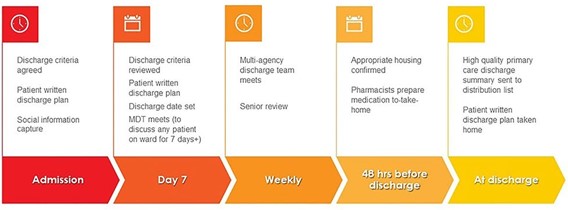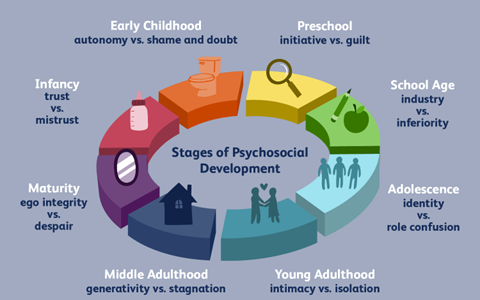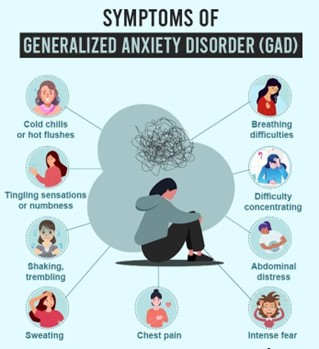A registered nurse is preparing a client who has chronic anxiety for discharge from the psychiatric unit.
Which of the following instructions should the nurse include in the client's discharge plan?
Identify anxiety-producing situations.
Try to repress feelings of anxiety.
Eliminate stress and anxiety from daily life.
Contact the crisis counselor once a week.
The Correct Answer is A
Chronic anxiety is a persistent feeling of unease, worry, or fear that can interfere with daily life. To manage chronic anxiety, the client needs to identify anxiety-producing situations that trigger their symptoms. This can help the client avoid or cope better with these situations. It is important to note that it is not always possible to eliminate stress and anxiety from daily life, so it is better to focus on managing it effectively.
Trying to repress feelings of anxiety is not a helpful strategy and can make the client's symptoms worse in the long run. Repressing emotions can lead to feelings of frustration, irritability, and even physical symptoms such as headaches or muscle tension.
Contacting the crisis counselor once a week may be helpful for some clients, but it is not a standard recommendation for all clients with chronic anxiety. The discharge plan should include personalized recommendations that are tailored to the client's specific needs and circumstances.

Nursing Test Bank
Naxlex Comprehensive Predictor Exams
Related Questions
Correct Answer is C
Explanation
The Industry versus Inferiority stage occurs during the ages of 6 to 12 years old. At this stage, children start to develop a sense of competence and work towards mastering new skills. Success during this stage leads to a sense of pride, while failure leads to feelings of inferiority.
Chronic illness can interfere with a child's ability to develop a sense of competence and mastery, leading to feelings of failure and inferiority. This can have a negative impact on their self-esteem and overall development.

Correct Answer is B
Explanation
Generalized anxiety disorder (GAD) is a type of anxiety disorder characterized by excessive and persistent worry about a variety of different things, including health, work, relationships, and everyday situations. People with GAD may experience physical symptoms, such as fatigue, muscle tension, and restlessness.
Option a is not a typical finding associated with GAD. Sudden unexplained loss of vision may be a symptom
of a neurological or ophthalmologic condition, but not specifically related to GAD.
Option c describes a condition called body dysmorphic disorder (BDD), which is a type of obsessive- compulsive disorder characterized by an excessive preoccupation with a perceived physical flaw. BDD is not typically associated with GAD.
Option d does not describe a typical finding associated with GAD. While physical health issues can contribute to anxiety, the need for surgeries within the last three months is not necessarily indicative of GAD.
Therefore, the correct option is b. Constant worry about the undiagnosed presence of an illness for more than 6 months. People with GAD often worry about their health and the possibility of having an undiagnosed illness, even when there is no evidence of a problem. This worry may persist for six months or more and can interfere with daily life.

Whether you are a student looking to ace your exams or a practicing nurse seeking to enhance your expertise , our nursing education contents will empower you with the confidence and competence to make a difference in the lives of patients and become a respected leader in the healthcare field.
Visit Naxlex, invest in your future and unlock endless possibilities with our unparalleled nursing education contents today
Report Wrong Answer on the Current Question
Do you disagree with the answer? If yes, what is your expected answer? Explain.
Kindly be descriptive with the issue you are facing.
